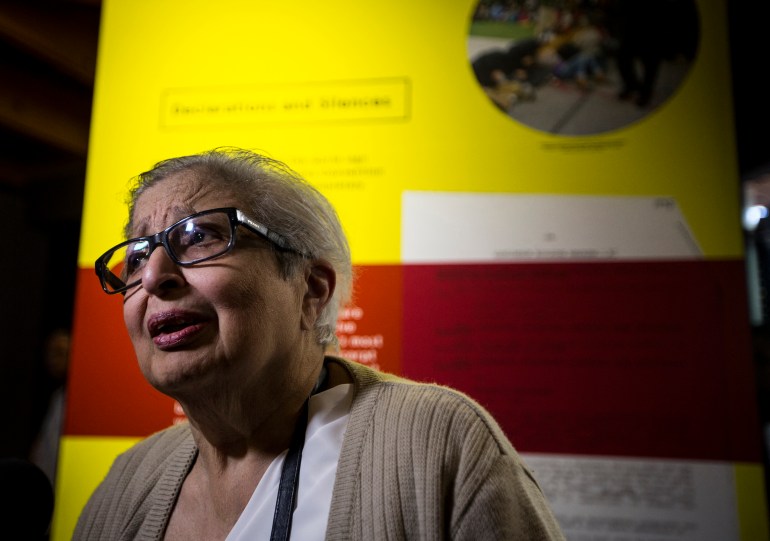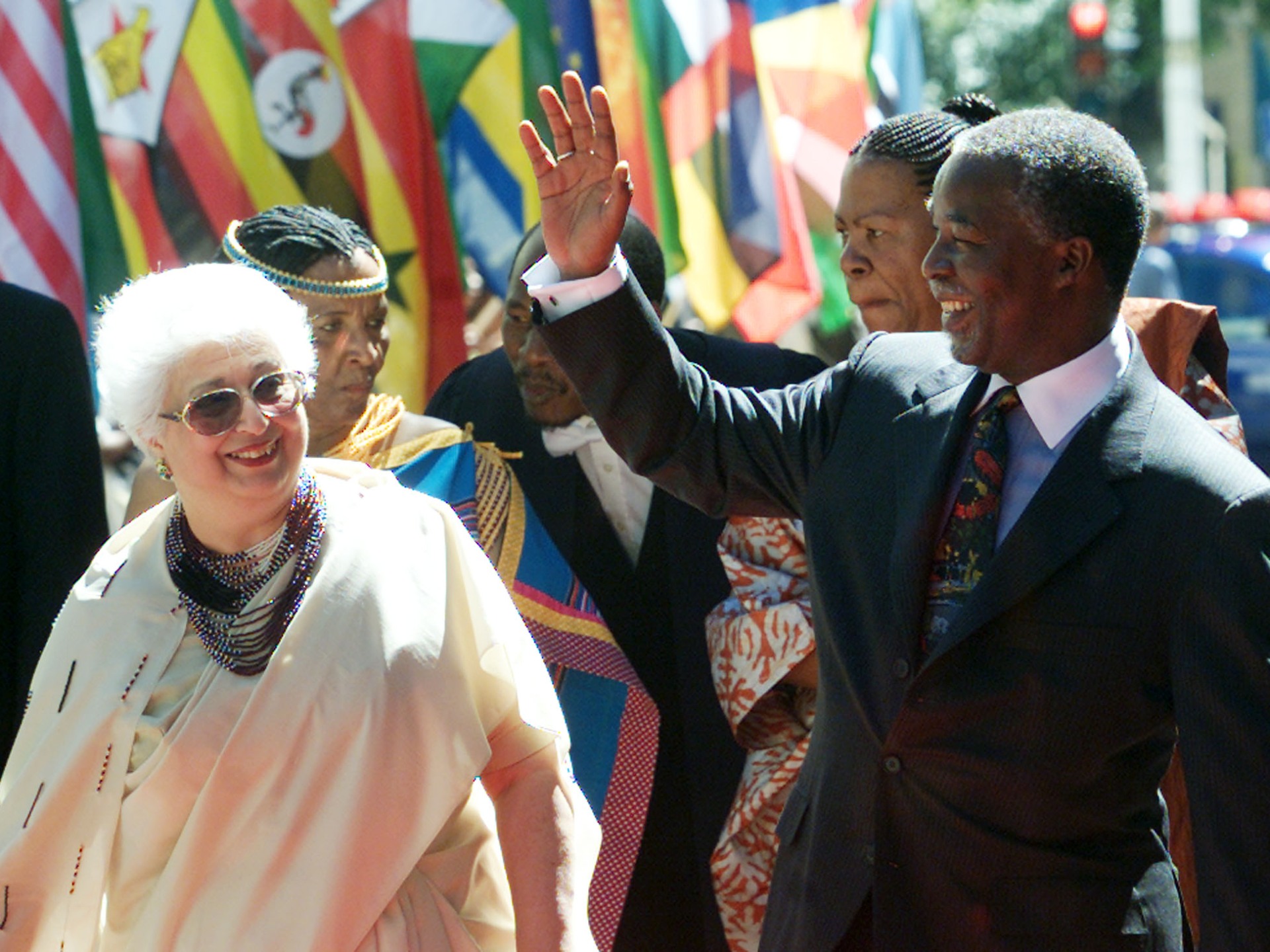Frene Noshir Ginwala, called the ‘torchbearer’ of the post-apartheid parliament, dies aged 90 after suffering a stroke.
Frene Ginwala, the speaker of South Africa’s first post-apartheid democratic parliament, has died aged 90, the president’s office said on Friday.
The constitutional expert, feminist and journalist passed away at her home on Thursday night, two weeks after suffering a stroke.
Frene Noshir Ginwala was associated with the ruling African National Congress (ANC) and campaigned against apartheid policies under white minority rule. She returned to South Africa in 1990 after 31 years in exile after a ban on the ANC was lifted.
“Today we mourn the passing of a formidable patriot,” President Cyril Ramaphosa announced on Friday.
“We have lost another giant among a special generation of leaders to whom we owe our freedom and to whom we owe our commitment to keep building the South Africa to which they devoted their all.”

Ginwala was appointed speaker of the National Assembly in 1994 when Nelson Mandela was elected president, marking the end of decades of white rule. She was the first woman to hold the post and did so until 2004.
Born in 1932 in Johannesburg to South Africa’s Indian community, Ginwala studied law in the United Kingdom.
‘Torchbearer’ of the post-apartheid parliament’
Ginwala’s life was changed by the 1960 Sharpeville tragedy when police killed 69 demonstrators protesting against the discriminatory “pass law” requiring Black youths to carry a passbook, which was designed to segregate the population.
She headed to neighbouring Mozambique, helping prominent members of the ANC to escape abroad after the party was banned.
In the 1970s, she became a prominent figure in international media, travelling around the world to muster support for the anti-apartheid movement and draw attention to abuses against the Black majority population.
“Ginwala exposed to the international community the crimes of the discredited, oppressive regime in South Africa through her sharp journalistic pen,” parliament Spokesperson Moloto Mothapo said.
Mothapo said she was a “torchbearer” of the post-apartheid parliament, instrumental in the formation of South Africa’s democracy.
The Nelson Mandela Foundation described her as a “stalwart of struggle” and offered condolences to family and friends.
“Madiba had the greatest respect for her,” said the Foundation’s chief executive, Sello Hatang.
Madiba was the name by which Mandela was widely known.
“Many of the rights and material benefits South Africans enjoy today have their origins in the legislative programme of the inaugural democratic parliament under Dr Ginwala’s leadership,” said President Ramaphosa.
